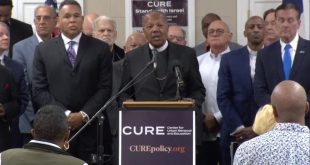Gender dysphoria has garnered a lot of attention over the last few years. Understandably, many prefer to shy away from the uncomfortable nature of the issue out of fear of ostracization, offending, or simple indifference. However, there are lingering questions, the most peculiar of which concern minors with gender dysphoria. Over the last few years, the number of young Americans identifying as transgender has substantially increased.[i] Despite adverse experiences[ii] and scandals,[iii] very few in the U.S. media have shown a willingness to subject the practice of medically transitioning adolescents with gender dysphoria to the scrutiny needed to ensure proper oversight and informed public awareness. Instead, many have disregarded caution in favor of pro-trans advocacy talking points such as “medically necessary health care” and “protecting trans youth.”[iv]
We do not contend that most advocates of trans youth medical interventions are bad people. We believe these people have been deceived by a false narrative (i.e., bigoted conservatives are just bullying the LGBTQ community[v]) and pseudo-science[vi] that caters to the bias of their preexisting worldview. By reflexively assigning all or most dissenting attitudes as “hate” and “transphobia,” trans advocacy groups (with the help of the media[vii]) have been able to restrict debate to the detriment of the youth they claim to be helping and society as a whole.
This report is centered on understanding the questions concerning medically gender-transitioning youth. It is important to note this is inherently different from other LGBTQ issues like gay marriage, workplace protections, and housing discrimination because this debate centers on science (or the lack thereof) and a minor’s ability (or inability) to consent. Similarly, this paper does not cover issues related to socially gender-transitioning youth (i.e., the use of pronouns or a style of dress associated with the opposite sex). As a society, we are asking minors as young as nine years old to make health decisions that will impact the rest of their lives in ways we (both skeptics and trans advocates) fundamentally do not understand.
Despite the popular spin, even the leading advocates of medically transitioning youth concede there are substantial research gaps and a lack of knowledge concerning long-term outcomes. The World Professional Association for Transgender Health (WPATH), the preeminent advocacy group for trans medicine, latest Standards of Care (version 8) stated the following regarding medically transitioning adolescents:
A key challenge in adolescent transgender care is the quality of evidence evaluating the effectiveness of medically necessary gender-affirming medical and surgical treatments … Despite the slowly growing body of evidence supporting the effectiveness of early medical intervention, the number of studies is still low, and there are few outcome studies that follow youth into adulthood. Therefore, a systematic review regarding outcomes of treatment in adolescents is not possible. – WPATH SOCv8 S45 & S46[viii]
We will dispute this “growing body of evidence” assertion and lay out the case to reject the little evidence used as justification for medically transitioning gender non-conforming youth. However, we are highlighting WPATH’s description of the evidence to lend support to the fact that both sides (those for and against medically transitioning gender-nonconforming youth) agree that the scientific support for doing so is weak. Although it is generally understood in the medical community that these treatments are experimental, pro-trans affirmation media and politicians have been hesitant to ask hard questions.
This report seeks to ask those hard questions concerning the ideological underpinnings of medically gender-transitioning children and adolescents, the medical interventions currently being employed on minors, the ability of minors to consent, and the deficient research and advocacy used to justify increasingly intensive medical interventions. We do not address consenting adult activity, although some broader ideological questions may have applications beyond medically transitioning youth.
Read the full report at CURE Policy.
 CURE News and Clergy Blog News and Commentary for Christians
CURE News and Clergy Blog News and Commentary for Christians



